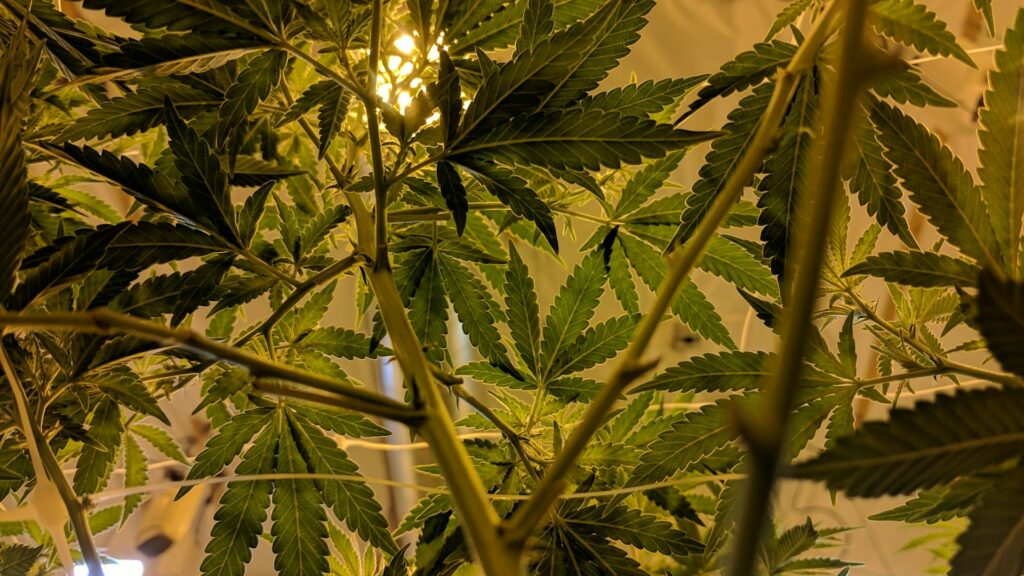The rise of private cannabis clubs and medical cannabis dispensaries in major cities in South Africa has outpaced legal clarity, with businesses exploiting legal gray areas following the 2018 decriminalization of cannabis for private use. Despite the growing cannabis market, the lack of a clear legal framework, including delayed implementation of the bill, has created uncertainty.
Cannabis Clubs and Medical Cannabis Dispensaries Have Exploded Across South Africa’s Major Cities


Private cannabis clubs and medical cannabis dispensaries have emerged in South Africa’s main cities. However, the legal status of these businesses remains uncertain due to a lack of clear regulations following the 2018 decriminalization of cannabis for private use.
As private cannabis clubs grows, the legal framework lags behind, creating a confusing and precarious environment for business owners and consumers.
For more news like this, along with all the latest in legalization, research, and lifestyle, download our free cannabis news app.
The Rise of Cannabis Clubs and Dispensaries
Since the landmark ruling by South Africa’s Constitutional Court, which decriminalized the private use and cultivation of cannabis, the cannabis market and, more specifically, cannabis clubs have thrived.
Cannabis clubs such as Infusion Social Club, Canna Busters, and Medcur Medical Cannabis have been established in urban areas like Cape Town and Johannesburg, with new outlets appearing regularly. Despite this growth, the sale of cannabis remains technically illegal under the 1992 Drugs and Drug Trafficking Act, which regulates drug-related activities in public spaces.
The boom in social cannabis clubs can be attributed to a legal gray area. Many clubs justify their operations by citing the Prince ruling, which legalized private cannabis consumption. They argue that by leasing private land to their members and offering horticultural services, they operate within the bounds of the law.
Legal Challenges
However, this “grow club” cannabis clubs model has faced legal challenges, notably in the case of The Haze Club in Cape Town, which was raided by police in 2020. The club’s defense was rejected by the court, with Judge Hayley Slingers ruling that allowing such a model without explicit legislation could effectively legalize the cannabis trade.
Meanwhile, medical dispensaries use Section 21 of the Medicines and Related Substances Act, which permits the sale of unregistered medicines in specific circumstances, to justify the sale of medical cannabis.
According to Paul-Michael Keichel, a cannabis attorney involved in these cannabis clubs cases, Section 21 was not intended to cover the widespread sale of cannabis through dispensaries but rather to provide urgent access to unregistered medicines for patients in dire need. He compared the use of this legal loophole to the controversial use of Ivermectin during the Covid-19 pandemic, arguing that businesses are abusing it to capitalize on the growing demand for cannabis-based products.
Cannabis Clubs Awaiting Legal Clarity
In May 2024, President Cyril Ramaphosa signed the Cannabis for Private Purposes Bill into law. This bill aimed to remove legal ambiguities surrounding cannabis use, cannabis clubs, and trade by establishing clearer guidelines on what constitutes private use and setting penalties for activities such as selling and supplying cannabis to minors. However, the bill has yet to be implemented, as it has not been officially published in the Government Gazette.
The lack of active legislation has frustrated many industry players, including cannabis clubs, who believe regulation is crucial to the sector’s prosperity.
Infusion Social Club, one of the country’s leading cannabis clubs, has called for the introduction of a regulatory framework similar to that used for alcohol. This framework would include cultivation permits, on-site consumption licenses, and the creation of a regulatory body to ensure compliance throughout the supply chain.
As they point out, the cannabis sector offers enormous economic potential but needs legal certainty to reach its full potential.
—
(Featured image by Drew Taylor via Unsplash)
DISCLAIMER: This article was written by a third-party contributor and does not reflect the opinion of Hemp.im, its management, staff, or its associates. Please review our disclaimer for more information.
This article may include forward-looking statements. These forward-looking statements generally are identified by the words “believe,” “project,” “estimate,” “become,” “plan,” “will,” and similar expressions. These forward-looking statements involve known and unknown risks as well as uncertainties, including those discussed in the following cautionary statements and elsewhere in this article and on this site. Although the company may believe that its expectations are based on reasonable assumptions, the actual results that the company may achieve may differ materially from any forward-looking statements, which reflect the opinions of the management of the company only as of the date hereof. Additionally, please make sure to read these important disclosures.
First published in Newsweed, a third-party contributor translated and adapted the article from the original. In case of discrepancy, the original will prevail.
Although we made reasonable efforts to provide accurate translations, some parts may be incorrect. Hemp.im assumes no responsibility for errors, omissions or ambiguities in the translations provided on this website. Any person or entity relying on translated content does so at their own risk. Hemp.im is not responsible for losses caused by such reliance on the accuracy or reliability of translated information. If you wish to report an error or inaccuracy in the translation, we encourage you to contact us.



Comments are closed for this post.